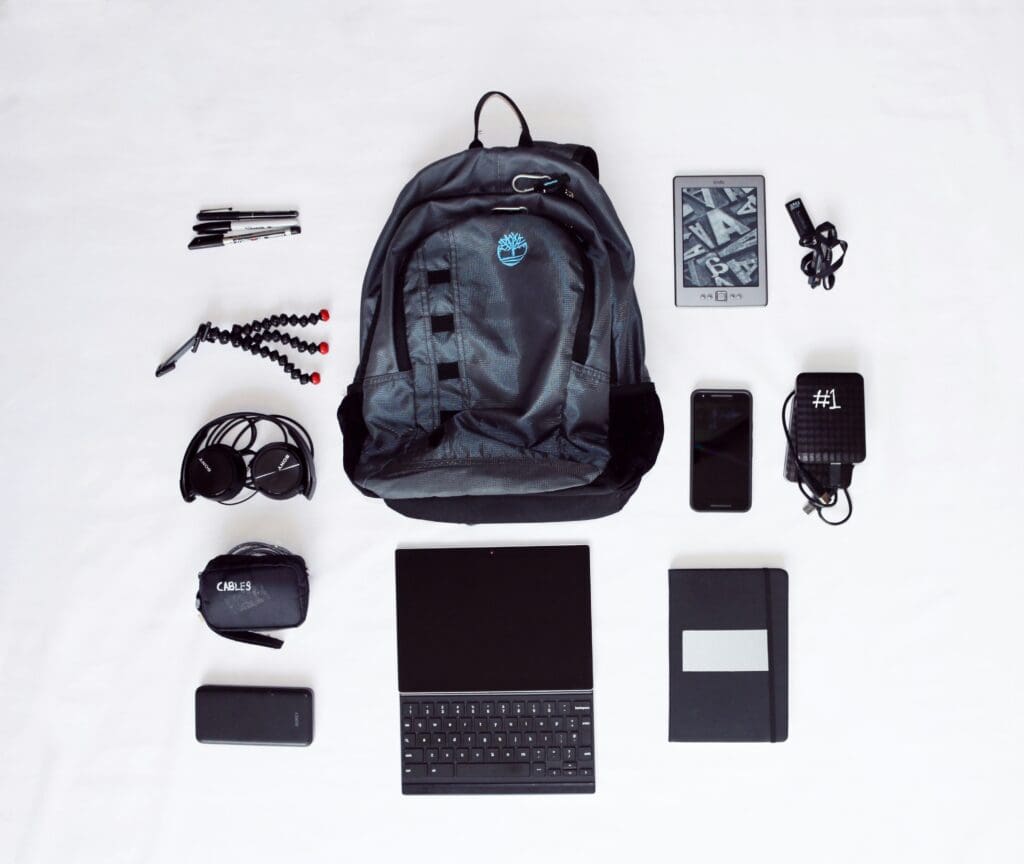Understanding the Importance of Organization for Students

Organization plays a pivotal role in a student’s academic journey, significantly influencing their performance, stress levels, and overall well-being. As students navigate the complexities of their educational responsibilities, maintaining a structured approach becomes essential for achieving success. When students are organized, they can manage their time effectively, prioritize tasks, and enhance their learning experiences.
Research indicates that students who implement organizational strategies often see marked improvements in their academic performance. For instance, a study published in the Journal of Educational Psychology found that students who actively engage in organizing their notes and assignments tend to achieve higher grades compared to their disorganized counterparts. This correlation underscores the critical impact of organization on educational outcomes. Moreover, by reducing clutter in their academic materials, such as backpacks and binders, students can save precious time, allowing them to focus on understanding and retaining information rather than searching for misplaced resources.
Beyond academics, organization can significantly alleviate stress. A well-organized study schedule can help students avoid the last-minute rush and the anxiety that comes with looming deadlines. By breaking down large projects into manageable tasks and keeping a well-maintained planner, students report feeling more in control of their workload. Testimonials from students underscore this point; many have shared how adopting organizational techniques has not only improved their grades but also enhanced their mental health.
Furthermore, the skills learned through academic organization extend beyond the classroom. They equip students with critical life skills necessary for professional success. Mastering time management and organizational skills fosters discipline and a strong work ethic, which are invaluable in future endeavors. In today’s fast-paced world, being organized is not just an advantage; it is a necessary skill for effective personal and professional management.
Evaluating Your Current Organization Methods

Effective organization is a crucial component of academic success. In order to improve your methods, it is essential to engage in a self-reflective evaluation of your current organizational practices. Begin by assessing your backpack, binder, and time management strategies, noting what works for you and where improvements can be implemented.
Start by examining the contents of your backpack. Are you carrying materials that are necessary for your classes, or is it cluttered with unnecessary items? Consider whether you have designated sections within your backpack for different subjects or types of materials. This not only streamlines your access to important resources but also encourages a habit of keeping only what is essential. Practical questions to ask yourself include: Do I frequently search for items? Are there materials I haven’t used in weeks? These inquiries will guide you in identifying inefficiencies.
Next, shift your focus to your binder organization. Reflect on whether your notes, handouts, and assignments are systematically arranged. Are the dividers clearly labeled for each subject, allowing for easy navigation? This is crucial in ensuring you can quickly find the documents you need for studying or completing assignments. Ask yourself: Do my current organization methods help me stay on top of deadlines? Am I struggling to find specific notes during study sessions? This assessment can reveal strengths and weaknesses in your binder organization strategy.
Finally, consider your time management techniques. How do you plan your daily and weekly tasks? Do you use a planner, digital calendar, or to-do list? Evaluating your planning methods can enhance your ability to prioritize assignments and manage responsibilities effectively. Reflect on the questions: Do I often miss deadlines? How do I track my progress on tasks? An honest assessment of these aspects will lead you toward recognizing areas where adjustments are needed, ultimately fostering a more effective and organized academic experience.
Organizing Your Backpack: Techniques for a Clutter-Free Approach

Maintaining an organized backpack is essential for students aiming to enhance their productivity and reduce stress. A cluttered backpack can lead to wasted time searching for essential materials. Therefore, employing effective organizational techniques is vital for a streamlined approach. One fundamental method is categorizing materials by subject or type. This can involve dedicating specific sections of your backpack to textbooks, notebooks, and stationery. By grouping similar items together, students can easily access what they need without unnecessary hassle.
Utilizing pouches can also greatly assist in organization. Consider investing in small, clear pouches for items such as pens, highlighters, and chargers. These pouches help keep small items contained and prevent them from getting lost among other materials. Additionally, implementing the ‘one in, one out’ rule can prevent clutter from accumulating. When acquiring a new item, such as a textbook or additional supplies, students should assess whether they can remove an older item from their backpack. This principle encourages mindful consumption and maintains a manageable load.
An effective organizational system can also include color-coding and labeling items. For instance, using different colored folders for each subject not only aids in visual categorization but also makes it easier to locate the necessary materials quickly. Labeling pouches or using a system of sticky notes for urgent items can further enhance accessibility and organization. Additionally, creating a checklist of essential items at the beginning of each week allows for a clear overview of what needs to be included in the backpack, ensuring that important materials are never forgotten. By adopting these creative organizational techniques, students can achieve a clutter-free backpack, improving their overall academic experience.
Binder Organization: Creating an Efficient System

Effective binder organization is a crucial skill for students aiming to optimize their study habits and manage their coursework. A well-structured binder enhances both physical and digital note-taking, allowing efficient access to vital information when needed. The first step in organizing a binder is to sort subjects appropriately. By clearly separating each subject, students can avoid confusion and easily locate notes pertaining to specific classes. Utilizing dividers is an effective method to categorize subjects. Choose tabbed dividers with labeled sections to create a straightforward visual reference.
An efficient binder system doesn’t rely solely on paper documents; it also incorporates digital notes. Students can actively take advantage of technology by scanning important documents or taking notes on their devices. Incorporating digital notes into the binder system allows for a more streamlined approach to study materials, especially when revisions are necessary. Apps for note-taking can synchronize seamlessly with cloud services to ensure that all relevant information is readily accessible across devices.
A key practice in maintaining an organized binder is the regular purging of unnecessary papers. Dedicate time at the end of each week or month to review the contents of your binder. This will help identify outdated materials or notes that no longer serve a purpose, reducing clutter and improving efficiency. Furthermore, consider implementing a ‘catch-all’ section within your binder for miscellaneous items or loose papers. This section can be helpful for documents that do not belong to a specific subject, allowing for easy access while keeping everything contained within one resource. Ultimately, these strategies for binder organization contribute significantly to a productive academic environment and help students stay on top of their academic responsibilities.
Utilizing Digital Tools for Enhanced Learning Organization

In today’s fast-paced academic environment, utilizing digital tools can significantly enhance student organization and overall productivity. With the plethora of applications available, students can streamline their learning processes through effective note-taking, task management, and scheduling. These tools not only support physical organization methods but also offer versatile options that can adapt to different learning styles.
One widely used platform is Google Drive, which provides cloud-based storage and seamless integration with Google Docs, Sheets, and Slides. This app allows students to create, collaborate, and store their work in one accessible location. The ability to share documents with peers means that group projects can be managed efficiently, minimizing the chaos that often accompanies collaborative assignments.
Another popular tool is Evernote, which excels in note-taking and organization. With features like tagging, notebooks, and web clipping, students can neatly categorize their lectures, articles, and research materials. Evernote also supports content synchronization across devices, ensuring that notes can be accessed anytime, anywhere, which is particularly beneficial for those who switch between their laptop and mobile devices.
Trello is also a prolific choice for task management, providing a visual way to organize projects through boards, lists, and cards. This flexibility allows students to track assignments, set deadlines, and break down tasks into manageable steps. By using Trello, students can easily visualize their workload and prioritize tasks more effectively, fostering a productive study environment.
In conclusion, integrating digital tools into your study routine not only bolsters your organizational capabilities but also facilitates a more structured approach to learning. As students navigate their academic journeys, embracing these technologies will provide the support needed to manage assignments and deadlines, complementing their physical organization strategies.
Time Management Strategies for Students

Effective time management is critical for students striving for academic excellence and personal balance. One of the most popular techniques employed by many students is the Pomodoro Technique. This method involves breaking study sessions into short intervals, typically 25 minutes, followed by a five-minute break. After completing four intervals, a longer break of 15 to 30 minutes is encouraged. This approach not only enhances focus and productivity but also helps to reduce mental fatigue. Students can leverage this method to ensure that their study sessions are both efficient and manageable.
Another effective strategy is time blocking. This technique involves allocating specific blocks of time for different tasks throughout the day. By establishing a detailed daily schedule, students can prioritize their commitments and minimize distractions. For instance, dedicating specific hours for study, extracurricular activities, and personal relaxation facilitates a more organized approach to responsibilities. Time blocking can be particularly advantageous in ensuring that students remain on track to meet their deadlines while also making time for relaxation and leisure activities.
The Eisenhower Matrix is a valuable tool for prioritizing tasks based on their urgency and importance. This method divides tasks into four quadrants: urgent and important, important but not urgent, urgent but not important, and neither urgent nor important. By categorizing tasks, students can better understand which activities require immediate attention and which can be scheduled for later. This systematic approach can prevent last-minute cramming for exams or rushed submissions of assignments. Ultimately, students who effectively implement these time management strategies are more likely to maintain a balanced academic and personal life. With the right techniques, students can navigate their responsibilities with greater ease and achieve their goals more efficiently.
Establishing a Regular Organization Routine

Establishing a consistent organization routine is essential for students aiming to enhance their academic performance and overall productivity. By dedicating time on a weekly basis to organize their materials, students can significantly reduce stress and avoid the chaos that often accompanies disorganization. A well-structured routine fosters good habits and encourages the development of effective organizational skills that will last beyond their academic careers.
To create an effective weekly organization session, students should first designate a specific day and time that aligns with their schedules. This designated period should be treated like any important appointment; consistency is key. By committing to this routine, students will develop the habit of regularly decluttering their backpacks and binders, ensuring that materials are organized in a manner that is easy to navigate.
During this weekly session, students should focus on a few key tasks. First, decluttering their backpacks can lead to a more efficient use of space and can make it easier to locate necessary materials. Items such as outdated handouts, unnecessary textbooks, or miscellaneous papers should be discarded. Next, organizing the binder is crucial; this can involve sorting class notes, handouts, and assignments by subject or due date. Utilizing dividers or color-coded systems can further enhance organization.
Moreover, this routine offers the opportunity to review upcoming assignments and deadlines. By checking a planner or digital calendar, students can prioritize tasks effectively and allocate their time wisely. Setting specific goals for the week can also contribute to improving time management skills. Incorporating these elements helps to not only keep students organized but also instills a sense of accomplishment as they work towards their academic objectives.
In summary, establishing a regular organization routine is vital for modern students. By committing to a weekly organization session, they can create lasting habits that lead to improved academic performance and reduced stress throughout their educational journey.
Maintaining Motivation: Tips for Sticking to Your Organizational Plan

Staying motivated throughout the academic year is crucial for effective student organization. One effective strategy is to set achievable goals, which allows students to focus on incremental progress. Rather than overwhelming oneself with lofty aspirations, breaking down tasks into smaller, manageable objectives can offer a clearer path to accomplishment. For instance, rather than aiming to organize your entire semester of work in one day, consider establishing weekly goals to organize individual subjects or projects.
Another powerful motivation tool is to implement a reward system. Students should treat themselves when they accomplish their organizational goals, be it through simple rewards like a favorite snack, a short break, or indulging in leisure activities. These rewards not only serve as positive reinforcement but also help build a habit of maintaining organization, as achieving goals becomes a fulfilling experience.
Additionally, the power of support from peers cannot be underestimated. Forming study groups or accountability partnerships can significantly increase motivation. When students share their organizational plans and goals with friends or family, the sense of commitment and accountability intensifies. Having a friend checking in on progress or studying together can create an encouraging environment that enhances motivation.
A further effective approach is to openly communicate your goals and organizational plans to family members and friends who can offer support. By involving others in your journey, you not only gain assistance but also create a community where everyone can stay organized together. Ultimately, the synergy created through collective support enhances motivation and fosters a culture of discipline and organization.
In conclusion, maintaining motivation in the pursuit of student organization involves setting realistic goals, rewarding efforts, seeking peer support, and cultivating accountability. By implementing these strategies, students can foster a sustainable organizational plan that accommodates their academic pursuits and personal growth.
Conclusion: Your Path to Becoming an Organized Student

Becoming an organized student is an achievable goal that can significantly impact your academic success and overall well-being. Throughout this blog post, we have explored various strategies to enhance your organizational skills, focusing on effective management of your backpack, binder, and time. Each of these elements plays a crucial role in fostering an environment that is conducive to learning and productivity.
Firstly, mastering your backpack involves not just decluttering but also establishing a system for organizing school supplies, textbooks, and essential materials. By applying simple techniques, such as using compartments and folders, you can ensure that everything you need is readily accessible. This not only saves time but also minimizes stress when preparing for classes or studying for exams.
Similarly, maintaining an orderly binder helps streamline your notes, assignments, and handouts, facilitating easier review and retrieval. By consistently updating and organizing your binder, you develop a habit that can enhance your academic performance. Your binder should serve as a well-structured repository of information that supports your learning process.
Lastly, time management is a skill that no student can afford to overlook. Implementing tools such as calendars, planners, and digital reminders can assist in scheduling study sessions, assignment deadlines, and extracurricular commitments more effectively. Taking small, deliberate steps to plan your day can lead to significant improvements in how you prioritize tasks and allocate your time.
In conclusion, organization is not an inherent trait but a skill that can be cultivated over time. As you embark on this journey, remember to be patient with yourself. Implementing these strategies gradually and consistently will pave the way for becoming a more organized student, ultimately paving the road to academic success.

